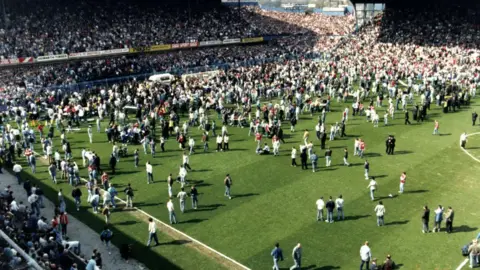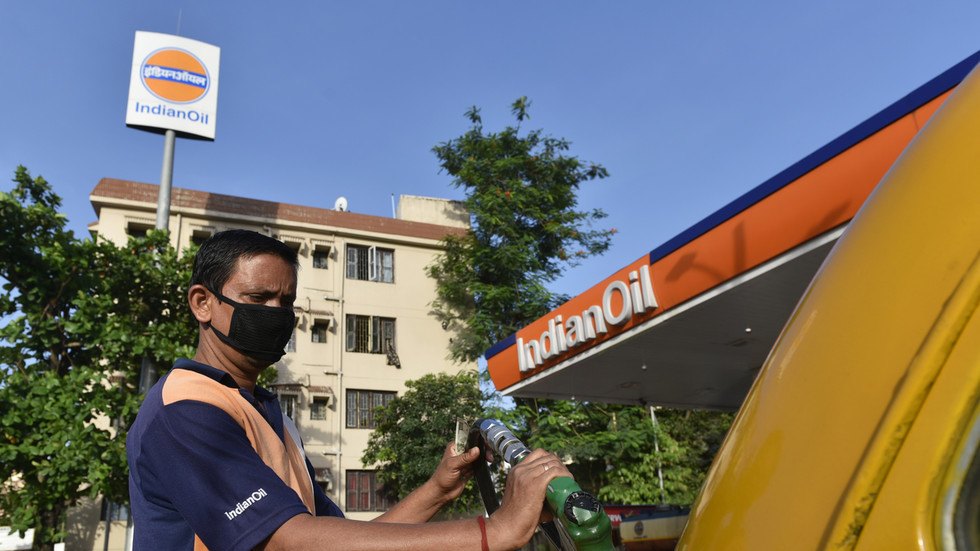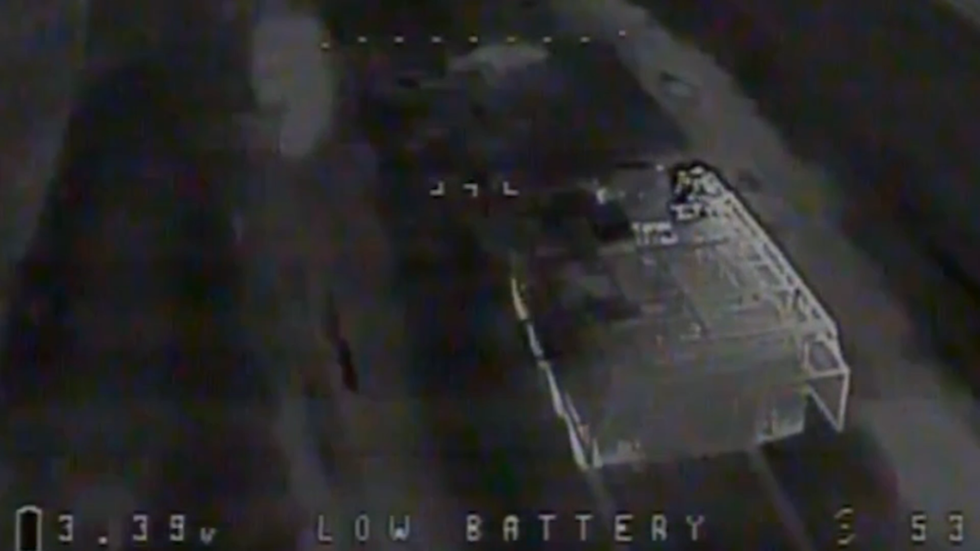
 PA Media
PA Media
The 1989 disaster at Hillsborough stadium resulted in the deaths of 97 football fans
The police watchdog has apologised for what have been described as "abhorrent, degrading and cruel" letters it sent to bereaved families and survivors of the Hillsborough disaster.
Val Jones, who was photographed carrying wounded fans across the pitch, was told by the Independent Office for Police Conduct (IOPC) there was no evidence she had seen bodies of fans who died in the 15 April 1989 disaster.
She was also told changes police made to a witness statement she gave were "uncontentious".
The IOPC said it was "extremely sorry for any distress the letters had caused".
Ninety-seven football fans died following the terrace crush at an FA Cup semi-final match between Liverpool and Nottingham Forest, and families of the victims have spent decades campaigning for the full truth of what happened to be revealed.
Ms Yates, who gave evidence to the later Hillsborough Inquiry, was also told complaints she made about specific police officers had not been upheld and that the decision was final.
The letter she received in July also said it had been right for police to question Liverpool supporters about how much alcohol they had drunk before the abandoned match at Hillsborough stadium in Sheffield.
'Contempt'
Ms Yates said: "Firstly it was shock, then it was like, 'We're rubbishing you, you're a liar'.
"I've got a lot of faults, but I'm not a liar."
The IOPC started its investigation in 2012 and is yet to deliver its final report. It is the largest independent police misconduct probe ever carried out in England and Wales.
It is examining around 150 individual complaints about officers' conduct during and after the disaster.
Twenty-eight letters were sent out to bereaved families and survivors to let them know the outcome of their complaints.
Ms Yates said the outcome letter arrived completely unexpected about 10 years after she made her complaint.
She said it "took me right back to all those feelings I had at the time".
Charlotte Hennessy, whose father James died in the crush at the Leppings Lane end of the ground, said the letters showed "contempt" for families and survivors.

 PA Media
PA Media
Families of the victims said the letters showed contempt for those affected
Ms Hennessy, who is a friend of Ms Yates, said she had complained to the IOPC about the letters, adding she had been concerned that there was "no support, no provision in place for the fact that these are very traumatised people, and no duty of care".
"Somebody needs to do something about it," she added.
In 2012, the government-commissioned Hillsborough Independent Panel found that there had been a police cover-up which included the wholesale amendment of statements.
In 2016, fresh inquests ruled that those who died were unlawfully killed, that the fans were not to blame for the crush on the terraces – and that alcohol had not played a part.
Ms Hennessy said she felt the IOPC had taken the narrative of the disaster backwards.
"The letters received prove that even now, all these years later, survivors have always been treated with such contempt, despite the inquests proving that they did nothing wrong," she said.
"[They] dismiss the accounts of survivors, there's no compassion, no respect and no understanding."
'Not good enough'
The watchdog has written to families and survivors again, explaining it has reviewed all the letters that are still waiting to be sent out.
People who are due to receive them will be given 10 days' notice.
Ms Yates said the apology was not good enough.
"It's a bog standard cut and paste letter that has gone to everybody," she said.
"I know there were other survivors that got letters which absolutely trashed their version of events.
"They had no right to do that. The complaint was about the conduct of officers. It's completely irrelevant."
She added the letters were "not an apology" and felt like they were "saying 'We're still going to call you a liar, just in a nicer way'."
The IOPC said that it expects to finish the process by the end of the autumn.
A date for the publication of its final report is yet to be confirmed.
In its apology letter, the IOPC said: "After we received the feedback, we immediately paused the process to consider how we could improve our approach and do everything possible to minimise any further distress."

 3 months ago
15
3 months ago
15









